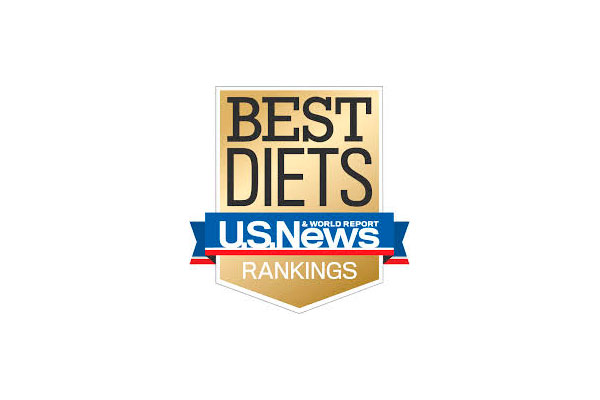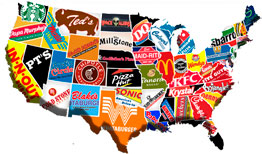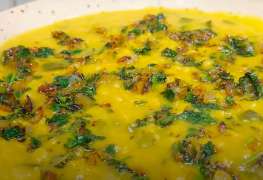 I am not a fan of diet rankings (our nutritional landscape’s Achilles heel is the obsession with dieting, as opposed to learning and developing healthful habits), but this list particularly disappointed and frustrated me.
I am not a fan of diet rankings (our nutritional landscape’s Achilles heel is the obsession with dieting, as opposed to learning and developing healthful habits), but this list particularly disappointed and frustrated me.Below, the five main problems I spotted.
1. Flawed methodology.
While US News & World Report recognizes that weight loss does not intrinsically equate with health, their criteria for a ‘bad diet’ is one that “locks out or severely restricts entire food groups, like carbs, or relies on supplements with little scientific backing, or clamps down on calories to an extreme.”
Not only are carbohydrates not a unique food group (they are found in fruits, grains, and vegetables), but the mere elimination of, say, dairy or grains does not necessarily result in nutritional deficiencies. More on that later.
I am more bothered by the red flags left out of that definition. Diet plans like Slimfast — where meals are often replaced by highly processed ‘foods’ — or NutriSystem — where you rely on pre-portioned meals to arrive at your doorstep — are problematic since they don’t do help people truly connect with food, nor do they instill healthful habits.
2. No regard for ingredients or foods.
Slimfast rates as #11 on this list of best popular diets, with a total score of 3.5 stars out of 5. I can’t begin to grasp that relatively high score. Consider, for instance, the ingredients that make up a Slimfast ‘sweet & salty chocolate almond meal bar’ (I have bolded certain ingredients):
Trans fats, a multitude of GMO ingredients, alkalized cocoa (AKA: cocoa that has been stripped of most of its health-promoting and beneficial compounds), artificial sweeteners, artificial dyes, omega-6 loaded soybean oil, and more white flour than whole grains. How can a diet program that centers around these sorts of “meals” (that atrocity is meant to replace a meal!) earn more than a single star?
3. The same old anti-vegan critiques.
This is perhaps the most disappointing aspect. A vegan way of eating (the term ‘vegan diet’ bothers me because it assumes weight-loss is the driving factor for people, when it usually is not) is ranked at #16.
Let me put that in perspective. A gimmicky diet program where you drink chemicals in a can (Slimfast) is ranked 5 spots higher than a way of eating that is simply about eating plant-based foods. Additionally, the critiques are rather uninformed and archaic. Consider these examples:
- “Be mindful that healthy veganism requires planning, especially if you’re a newbie.”: A more accurate statement is that veganism requires a change in lifelong habits, so there is, of course, going to be a transitional period. Once it’s traversed, new habits become ‘the norm’.
- “Veganism takes some work and creativity”. Perhaps if you were left to your own accord, but with the slew of vegan cookbooks on the market — many tailored to individuals looking for quick and easy meals — I vehemently disagree. Sure, cooking from scratch requires more work and creativity than nuking a Weight Watchers meal in the microwave, but that applies to any way of eating.
- “It’s moderately pricey. Fruits, vegetables, and soy products—which should be filling your cart if you’re doing it right—are generally more expensive than heavily processed foods like white bread, sugary cereals, and sweets.”. Soy products are not necessarily an example of “doing veganism right”. Tempeh and edamame are one thing, but stocking up on soy hot dogs, soy nuggets, and soy burgers is not “doing it right”. As for cost: anything is expensive in comparison to subsidized minimally nutritious foods, so why single veganism out?
- “It can be really restrictive”. You literally have thousands of foods at your disposal. It may be restrictive if you’re dining at a steakhouse or Arby’s, but why should that be the defined standard?
- “Foods that contain vitamin D are typically animal-derived, so it may be difficult for vegans to meet the standard. A supplement may be necessary.” Vitamin D insufficiency is widespread, and an omnivorous diet does not guarantee sufficient vitamin D levels (especially when you consider that official recommendations for 600 International Units a day are paltry compared to the ever-increasing body of research which recommends at least 2,000 IUs a day, an amount that can only be achieved via supplementation).
4. Very limited knowledge of raw food diets.
This article makes the classic mistake of casting all raw food diets as nutritionally imbalanced and potentially dangerous. One of the ‘warnings’? “Food poisoning could stem from eating raw or undercooked meat, fish, milk, or eggs.” An odd critique, since, except for very rare occasions, raw food diets are vegan.
One mentioned critique of raw food diets is that they ‘eliminate food groups’. While some raw foodists abstain from grains and legumes (and all abstain from dairy), there is no evidence that shunning grains and/or dairy leads to deficiencies, particularly if said diet is high in whole foods like fruits, vegetables, nuts, and seeds.
Keep in mind, too, that many raw foodists consume ‘pesudograins’ like buckwheat and quinoa as well as whole grains like oats, corn, and wheatberries. So, really, the ‘food avoidance’ concern is not warranted. As far as fears of eliminating dairy, not only does bone health go beyond calcium & vitamin D; many vital nutrients found in plant-based foods are missing from dairy.
While I do not believe the enzyme theory central to the raw food diet (the idea being that we must get digestive enzymes from foods, and therefore should not heat them above a certain temperature) holds weight, I don’t have a problem with the diet’s nutritional composition. On the contrary, I find it is nutrient-rich and centered around a plethora of healthful whole foods.
Can it be unbalanced or lacking in nutrients? Absolutely, just like any other way of eating (is a breakfast of Lucky Charms and chocolate milk, or a lunch made up of chicken nuggets and soda “balanced” or “nutritious”?). It is also important to point out that while some raw food “gurus” take an ‘all or nothing’ approach and make ludicrous claims like “cooked food kills” (spoiler: it doesn’t!), many raw foodists simply want people to eat more raw plant-based foods, which sounds like a great idea to me.
5. The double-edged research sword.
Two of the criteria — “heart-healthy” and “can help prevent/treat diabetes” — rely on peer-reviewed research. The problem within this particular context is that it systematically gives Slim-Fast, NutriSystem, and Weight Watchers an unfair advantage. Not only do big corporations have money to spend on research, but since those diet plans are very uniform and popular, they are easier to include in a study and have scientific results about.
A vegan diet, for example, can take on many different forms, which can lead to ‘inconclusive’ or ‘mixed’ results. A vegan ‘diet’ rich in nuts, seeds, avocados, coconut, and dark leafy greens will yield very different results from one that is high in refined flours, added sugars, and unhealthy oils like corn or cottonseed.








Leave a comment